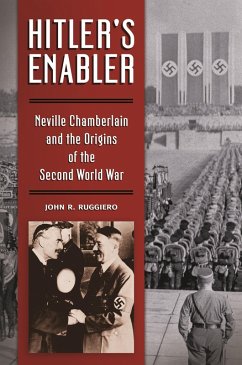Based largely on Neville Chamberlain's own words and official government documents, this book describes how were it not for Chamberlain's powerful, dominating presence in the British government, World War II might have been avoided. Was Adolf Hitler hell-bent on inciting a war, and there was no course of action by any national leader that could have prevented World War II? Or, did Prime Minister Neville Chamberlain's appeasement policy with Germany and slowness in strengthening England's armed forces directly encourage Hitler to strike, dooming Chamberlain's successor Winston Churchill to face the war that could have been prevented? This book provides an in-depth look at one of the most pivotal moments in England's history, tapping a variety of primary sources to reveal rarely considered perspectives on the story behind the road to World War II. It explains how Chamberlain was driven by a personal agenda to destroy Socialism, which was the primary force behind Chamberlain's "double policy" of gradual rearmament and appeasement of the German dictator that enabled Hitler to strengthen his position in Europe. Author John Ruggiero takes exception to the Revisionist argument that Chamberlain had no choice but to appease Hitler, instead arguing that Charmberlain's pursuit of a policy of appeasement powered Germany's war machine, and as the most important figure in the British government, he therefore bears full responsibility for the failure of that policy. Students of international relations and history will be surprised to learn that Hitler was not wholly responsible for the war, while scholars will be interested in the manner in which Chamberlain managed to control the agenda-and his rationale for doing so.









